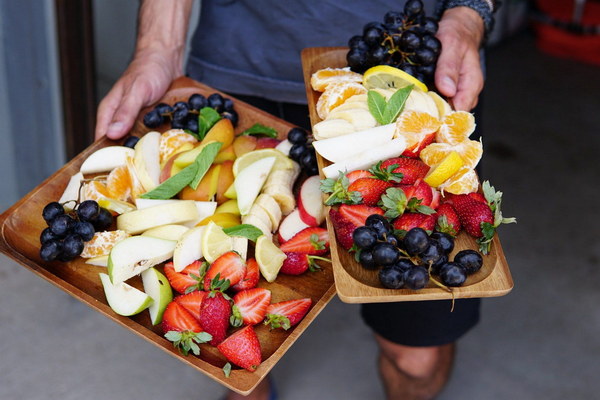Easing Dampness and Phlegm in Elderly Traditional Remedies for Healthier Aging
As we age, our bodies become more susceptible to various health issues, and one common problem that affects many elderly individuals is dampness and phlegm. This condition, often referred to as damp-heat in traditional Chinese medicine, can lead to discomfort, fatigue, and various other health complications. In this article, we will explore the causes of dampness and phlegm in the elderly, and discuss traditional remedies that can help alleviate these symptoms, promoting a healthier and more comfortable aging process.
Understanding Dampness and Phlegm in the Elderly
Dampness and phlegm are conditions that occur when the body's internal environment becomes imbalanced, leading to the accumulation of dampness and the production of excessive phlegm. This imbalance can be caused by several factors, including:

1. Poor diet: Consuming excessive amounts of cold, damp, or greasy foods can lead to the accumulation of dampness and the production of phlegm.
2. Excessive sweating: Sweating excessively can deplete the body's fluids, leading to an imbalance in moisture levels and the development of dampness.
3. Lack of exercise: Physical inactivity can weaken the body's immune system, making it more susceptible to dampness and phlegm.
4. Environmental factors: Living in a damp or humid environment can exacerbate the symptoms of dampness and phlegm.
Traditional Remedies for Easing Dampness and Phlegm
Thankfully, there are several traditional remedies that can help alleviate the symptoms of dampness and phlegm in the elderly. Here are some of the most effective methods:
1. Diet: A balanced diet that avoids cold, damp, and greasy foods can help reduce the accumulation of dampness and the production of phlegm. Elderly individuals should focus on consuming warm, nourishing foods such as soups, stews, and porridge, as well as foods that are rich in vitamins and minerals, such as fruits and vegetables.
2. Herbs and teas: Herbs and teas can be used to help eliminate dampness and phlegm from the body. Some popular options include:
- Astragalus (Huang Qi): A powerful immune-boosting herb that can help ward off infections and improve overall health.
- Ginseng (Ren Shen): Known for its energy-boosting properties, ginseng can help alleviate fatigue and improve the body's ability to fight off dampness and phlegm.
- Licorice root (Gan Cao): A soothing herb that can help balance the body's fluids and alleviate symptoms of dampness and phlegm.
- Green tea: A natural diuretic that can help eliminate excess dampness and reduce inflammation.
3. Acupuncture and massage: Acupuncture and massage therapy can help improve the body's circulation, alleviate muscle tension, and promote the elimination of dampness and phlegm. These therapies can also help reduce stress and improve overall well-being.
4. Exercise: Regular physical activity can help improve the body's immune system, reduce dampness and phlegm, and promote overall health. Elderly individuals should engage in low-impact exercises such as walking, swimming, or tai chi.
5. Adequate rest: Ensuring adequate rest and sleep can help the body recover from the effects of dampness and phlegm. Elderly individuals should aim for 7-9 hours of sleep per night and take short naps during the day if needed.
Conclusion
Easing dampness and phlegm in the elderly can be a challenging task, but with the right approach, it is possible to improve their comfort and overall health. By focusing on a balanced diet, traditional herbs and teas, acupuncture and massage therapy, regular exercise, and adequate rest, elderly individuals can effectively manage the symptoms of dampness and phlegm, leading to a healthier and more comfortable aging process.









